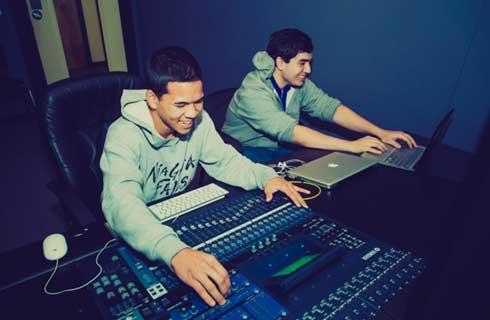认知,大脑与行为哲学博士
Doctor of Philosophy in Cognition, Brain and Behavior

学历文凭
Ph.D.

专业院系
Department of Psychology

开学时间

课程时长

课程学费

国际学生入学条件
IDP—雅思考试联合主办方

雅思考试总分
6.5
- 雅思总分:6.5
- 托福网考总分:80
- 托福笔试总分:160
- 其他语言考试:NA
CRICOS代码:
申请截止日期: 请与IDP联系 以获取详细信息。
课程简介
The Department is organized into four areas: clinical science, developmental, social, and cognition, brain, and behavior. These groups consist of faculty members whose combined interests span a coherent program of advanced study and research in some subfield of psychology. Individual faculty and graduate students are encouraged to participate in more than one group. Research in the Cognition, Brain, and Behavior (CBB) group includes studies of sensation and perception, learning and memory, attention, mental imagery, conceptual representation, aging, language, emotion, motor control, social cognition, moral decision making, and neurological disorders. The subjects for these studies range from normal human adults and infants to brain-damaged patients, and various non-human primate and avian species. Methodologies include computer-based behavioral tests and web-based surveys to assess functional patterns in behavior, as well as functional neuroimaging techniques (such as magnetic resonance imaging, electroencephalography, magnetoencephalography and transcranial magnetic stimulation) to study the neural bases of various components of cognition and behavior.
相关申请
 预科
预科 奖学金
奖学金 实习机会
实习机会 在校学习
在校学习 跨境学习
跨境学习 校园授课-线上开始
校园授课-线上开始 在线/远程学习
在线/远程学习
开学时间&学费
学费信息仅供参考,请与IDP联系以获取详细信息
| 开学时间 | 时长 | 学费 | 地点 |
|---|
学校排名

世界排名6
数据源:
泰晤士高等教育世界大学排名
关于哈佛大学

先后诞生了八位美国总统,40位诺贝尔奖得主和30位普利策奖得主。哈佛大学商学院案例教学盛名远播。这里也培养了缔造了微软、IBM、Facebook等一个个商业奇迹的人。哈佛大学教学资源之丰富令人咋舌。哈佛大学拥有70个独立图书馆,3000英亩森林研究站,12座教学用博物馆,占地265英亩的植物园,哈佛大学有24座科学研究专用校舍,多个剧院和舞台,41支体育团队,450个学生社团……除此之外,你还能够跨界注册哈佛研究生院与职业学院,甚至邻居麻省理工的课程! 满足哈佛大学本科录取要求的学生SAT Math部分平均成绩在710到790之间;Verbal部分平均得分在700-800之间;平均SAT总分(Combined)为2225,比全美其它各大学的录取平均SAT成绩高出了41.3%。每年约有70%的学生能够获得奖学金,且申请奖学金不会影响申请者被录取的几率。
本校相关课程

公共卫生博士
学历文凭
Ph.D.
开学日期
课程费用总额


公共卫生硕士(45学分)
学历文凭
Masters Degree
开学日期
课程费用总额


工商管理硕士/医学博士
学历文凭
Combined Graduate / Doctoral Degree
开学日期
课程费用总额


法学博士/国际发展公共管理硕士
学历文凭
Combined Graduate / Doctoral Degree
开学日期
课程费用总额


法学硕士
学历文凭
Masters Degree
开学日期
课程费用总额


法学博士
学历文凭
Juris Doctor
开学日期
课程费用总额

其他相关课程

Certificate in Applied Behavior Analysis
 德克萨斯农工大学学院站分校
德克萨斯农工大学学院站分校学历文凭
Graduate Certificate
开学日期
课程费用总额


Master of Science in Behavior Analysis
 塞勒姆州立大学
塞勒姆州立大学学历文凭
Masters Degree
开学日期
课程费用总额


Doctor of Philosophy in Psychology - Systems and Behavioral Neuroscience
 弗吉尼亚大学
弗吉尼亚大学学历文凭
Ph.D.
开学日期
课程费用总额


Master of Public Health (Traditional) - Social and Behavioral Sciences
 佛罗里达大学
佛罗里达大学泰晤士高等教育世界大学排名:136
学历文凭
Masters Degree
开学日期
课程费用总额


行为科学文学士学位(迪尔伯恩)
 密歇根大学安娜堡分校
密歇根大学安娜堡分校学历文凭
Bachelor Degree
开学日期
课程费用总额


跨学科研究应用科学学士学位-人性
 湖首大学
湖首大学泰晤士高等教育世界大学排名:1080
学历文凭
Bachelor Degree
开学日期
课程费用总额










